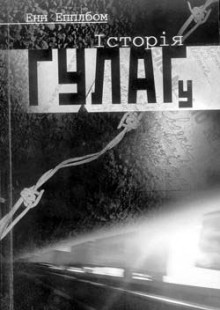“How Ukraine and its history are perceived in the world depends on your efforts,” said Anne Applebaum during a recent visit to The Day. The distinguished journalist, civic activist, and member of the editorial board of The Washington Post, was in Kyiv to launch the Ukrainian version of her book GULAG: A History, prepared by Kyiv-Mohyla Academy Publishers with assistance from the US Embassy.
Applebaum’s book relies on generally known facts as well as on the results of her own extensive research in former Soviet archives. Her book, which won the 2004 Pulitzer Prize for Non-Fiction and Britain’s Duff Cooper Prize, has been translated into more than 20 languages.
Despite her tight schedule, Applebaum met with The Day’s staff. During the conversation she stressed that there is growing attention in the West to the tragic histories of the former Soviet republics. She admitted that in the past only two groups of historians specialized in the Soviet Union: one group relied on data from official sources, while the other sought to obtain facts from unofficial sources, for example, by communicating with ordinary people.
There were sharp differences between these two groups of historians, but today all sentimental factors concerning the USSR have disappeared. Applebaum noted that the West’s interest in the history of Eastern European countries was sparked primarily by the stormy events of the past several decades, including the Velvet Revolutions in what are now the Czech Republic and Poland, and the Orange Revolution in Ukraine. Certain countries (among them Sweden, in her opinion) have realized their moral responsibility for their previous neutral positions and for failing to apply efforts to prevent the tragic processes that were taking place in the Soviet Union.
The American journalist repeatedly emphasized that the extent to which Ukrainians can effectively represent their history depends solely on our own efforts. Stanislav Kulchytsky, the noted Ukrainian historian, who met with Applebaum, acknowledged that the American writer did extensive and effective research on archival materials, something that many serious Ukraine-based specialists don’t seem to get around to. Among other things, she studied little known archival documents from Arkhangelsk, the Solovets Islands, and Karelia.
Applebaum said that she is not the only one to research these documents. At least two American colleagues have collected materials on the tragic pages of Soviet history in Magadan and Karaganda, neither of whom was afraid of spending time in those remote regions in winter.
Should Russia, as the legal successor of the Soviet Union, assume responsibility for past tragedies? Why does the world know so little about the Holodomor? Is Anne Applebaum planning to compete with Aleksandr Solzhenitsyn, author of the GULAG Archipelago? You will find answers to these and other questions in upcoming issues of The Day.








